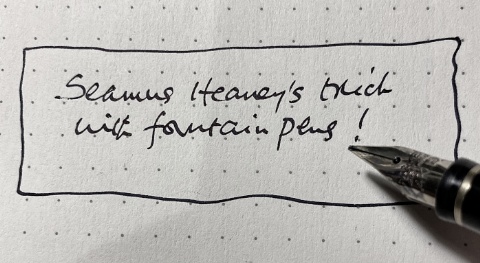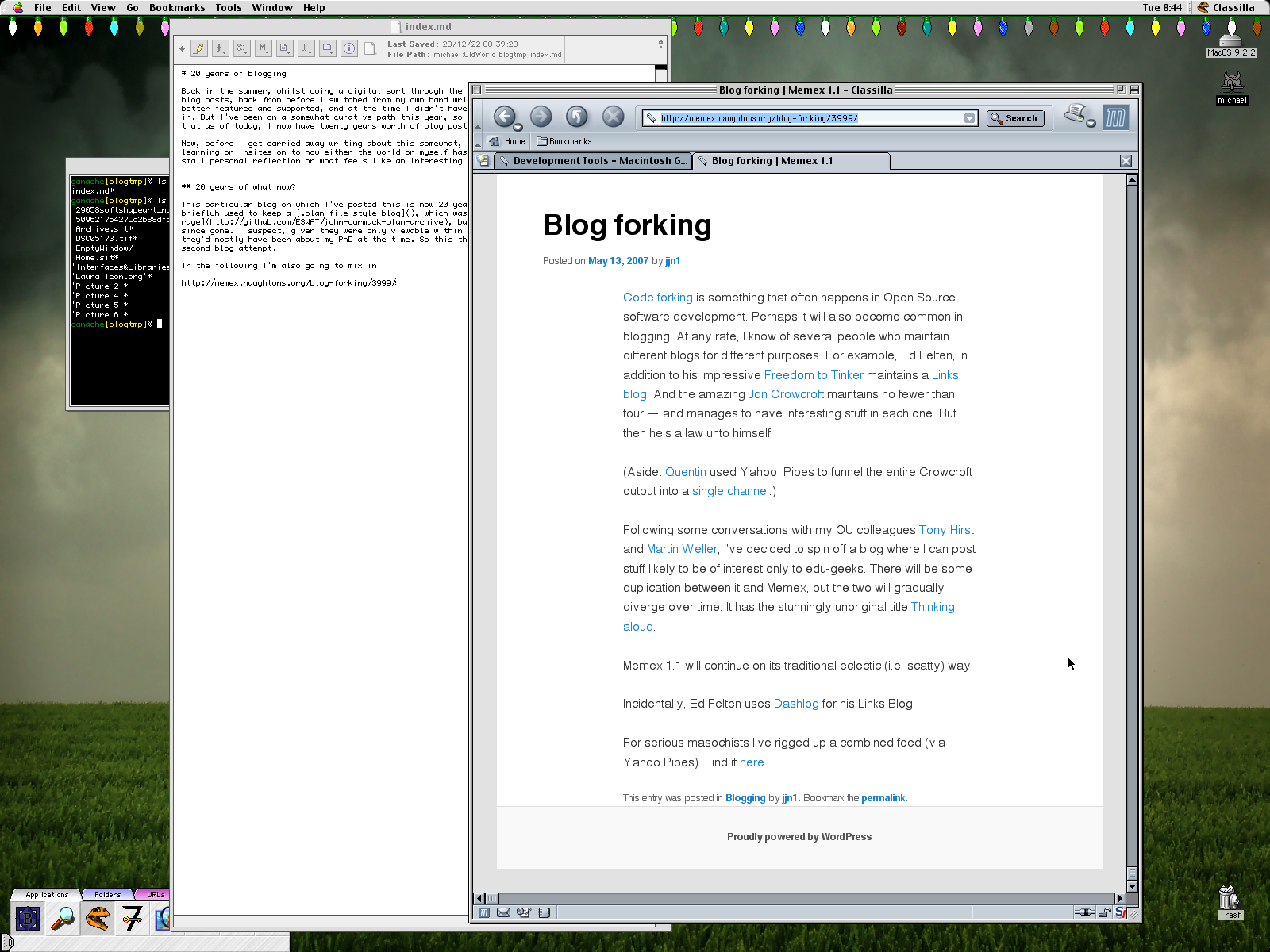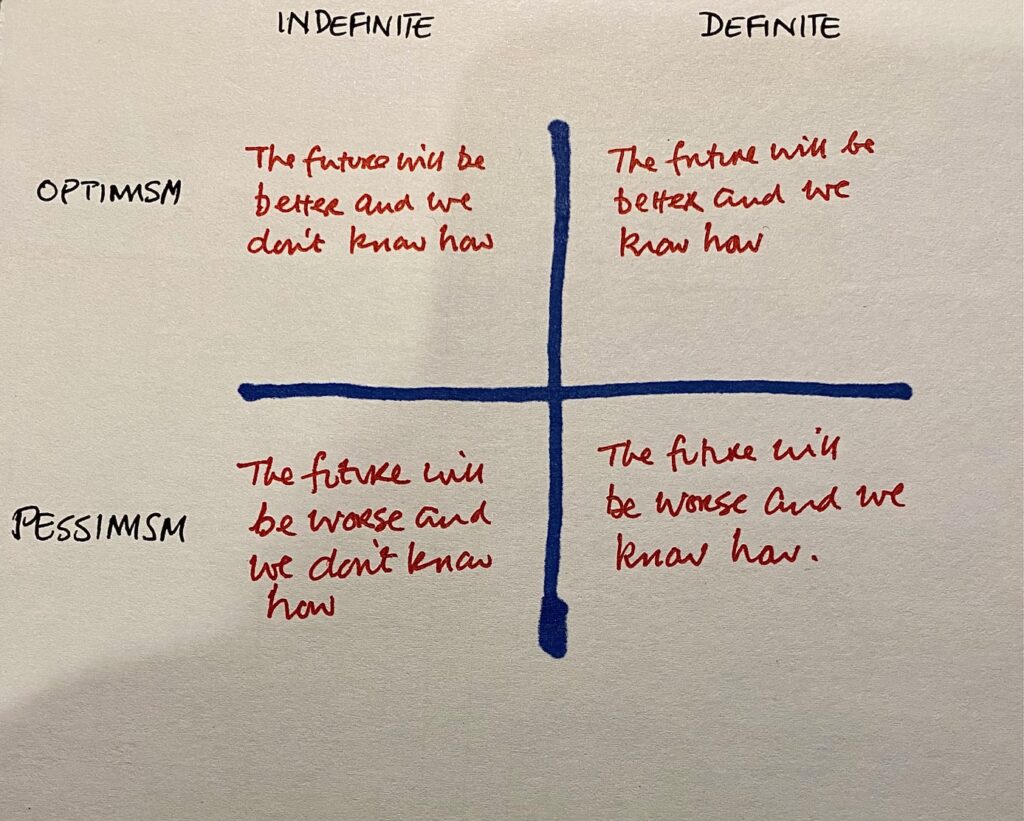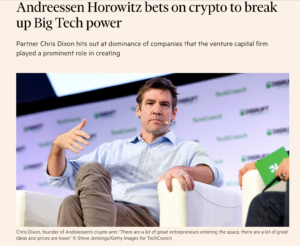‘A prophet is not without honour”, says the Bible, “save in his own country.” This was manifestly not true in the case of Marshall McLuhan, the Canadian cultural critic, who died 35 years ago, and was famous not only in his own country, but also abroad. In fact, he’s the only public intellectual I can think of who played himself in a Woody Allen movie.
If you’re a film buff you will recall the wonderful sequence in ‘Annie Hall’, where Woody and Diane Keaton are queuing for a movie when a guy behind them starts opining pompously about McLuhan’s description of television as a “high intensity or hot medium”. Allen expresses to camera a desire to have a large sock full of horse manure with which to zonk this cretin, whereupon the guy indignantly asserts his right to express his opinion on the grounds that he teaches a course on “TV, media and culture” at Columbia, no less — a fact that (he asserts) – gives his views on McLuhan a great deal of validity.
“That’s funny,” replies Woody, “because I happen to have Mr McLuhan right here.” He goes over to a flipchart and pulls out the great man himself from behind it. “I heard what you were saying,” says McLuhan to the Columbia man. “You know nothing of my work… how you ever got to teach a course in anything is totally amazing.” The scene closes with Woody saying to camera: “Boy, if life were only like this.”
Because McLuhan was a Canadian, and spent all of his working life in American and Canadian universities, most people don’t realise that his formative intellectual experiences took place here in Cambridge, where I live and work. He came to the university in 1934 to read English, was taught by I.A. Richards and F.R. Leavis among others, and obtained his B.A. degree in 1936. After a short spell as a Teaching Assistant at the University of Wisconsin in Madison, he returned to Cambridge to do a PhD on the history of the verbal arts — that is to say, grammar, logic and rhetoric, from Cicero onwards — which he obtained in 1943. During that time he lived on Grange Road in a house which no longer exists, but which I pass on my bike on my way to College. And I rarely pass it without thinking of him.
After Cambridge, McLuhan appeared to embark on the life of a traditional literary scholar – an expert on Joyce and Wyndham Lewis — teaching first in the United States and eventually winding up at the University of Toronto, where he remained until he died in 1980. It was in Toronto that the first manifestations of his interest in mass media and popular culture first emerged. He ran a famous series of after-hours, impromptu seminars with students in which they decoded the hidden language of advertisements.
This led in 1951 to his first book, The Mechanical Bride: folklore of industrial man, a pioneering essay in a field hitherto largely ignored by scholars — popular culture. The more he thought about it, the more he was drawn to the work of another Toronto professor, Harold Innis, an economist who had written seminal works on media, communication and economic history and who had become fascinated by the influence of communications media on the rise and decline of empires. In his book, The Bias of Communications, Innis’s argued that any major communications medium alters the entire outlook of those who use it.
These ideas had a profound impact on McLuhan – to the point that when he published his second book, The Gutenberg Galaxy: the making of typographic man, in 1962 he described it as a mere footnote to Innis’s writings on the psychological and social consequences of writing and printing.
It was from Innis that McLuhan picked up the germ of the idea that later made him famous. This was the proposition that the form of a dominant communications medium is far more important than any messages that the medium carries. The significant thing about media, he maintained, is not the information they carry but what they do to us in terms of shaping our behaviour, the way we think and even the way our brains are structured. McLuhan argued that this had been demonstrated by the media that had dominated society up to the 1960s – starting with print and culminating with broadcast television – and added the twist that TV was restoring the “sensory balance” that had been disrupted by print. In Understanding Media (1964), the book that made him a global celebrity of sufficient status to appear in a Woody Allen film, he encapsulated this thought in one of the most celebrated – and misunderstood – aphorisms of all time: the medium is the message.
In the 1960s and 1970s McLuhan was probably the most famous scholar in the world – at least in terms of name-recognition. Only Noam Chomsky would have come close. This was partly because his chosen subject was the dominant medium of the day – broadcast television – and TV people are famously narcissistic. But it was also partly due to the disdainful manner with which he dealt with media interrogators, and the aphoristic, assertive style of his public utterances. As one critic, William Melody, observed,
“Adopting a stance of arrogant superiority, he considered clarifying his ideas an unworthy menial task for intellectual plodders, and dismissed challenging questions with comments like, ‘You don’t like those ideas. I got other ones’, and the infamous, ‘You think my fallacy is all wrong?’ He paid scant attention to facts and never conceded a point. His ultimate put down was a benign explanation that the question revealed the person was locked into the uni-dimensional visual bias of the age of print and could not really be expected to understand.”
McLuhan’s infuriating public persona was particularly annoying to the British cultural establishment which could never figure out how a disciple of I.A. Richards could have gone so comprehensively off the rails.
One revealing example of the hostility he engendered is the dismissive little study that Jonathan Miller penned in 1971 for the Fontana Modern Masters series, the General Editor of which was my late and much-lamented friend, Frank Kermode. But there were lots of others. The general feeling in these parts was that McLuhan was the 1960s equivalent of the contemporary New Yorker writer Malcolm Gladwell – i.e. someone of whom it might be said: “deep down, he’s shallow”.
With the 20/20 vision of hindsight, that judgement now seems too harsh. What we’re discovering is that, like good claret, McLuhan’s insights have improved with age. His problem was that he was running ahead of the neuroscience that he needed to support his—and Innis’s – conjectures about the impact of media not just on society but also on our brains. Remember the subtitle of his second book: “the making of typographic man”. His conjecture was that Gutenberg’s technology changed not just the way we thought, but even the way we could think. Homo typographicus, in other words, was a different creature from his pre-print ancestors.
What McLuhan didn’t know (couldn’t have known), of course, was what neuroscience subsequently revealed about the amazing plasticity of the human brain – its ability to change its structure in response to different conditions. As Maryanne Wolf pointed out in Proust and the Squid, her riveting study of the reading brain, humans were not born to read — we evolved to cope with the task. There are, she writes,
“few more powerful mirrors of the human brain’s astonishing ability to rearrange itself to learn a new intellectual function than the act of reading. Underlying the brain’s ability to learn reading lies its protean capacity to make new connections among structures and circuits originally devoted to other more basic brain processes that have enjoyed a longer existence in human evolution, such as vision and spoken language. We now know that groups of neurons create new connections and pathways among themselves every time we learn a new skill”.
That’s why the brains of literate people are differently structured from those of illiterates. And it illuminates McLuhan’s other famous aphorism: “we shape our tools, and afterwards they shape us”.
Which brings us to where we are now. In a strange way, McLuhan’s insights into media seem more relevant now than they were in the 1960s. The past few years, for example, have seen a series of angry and sometimes anguished debates about what our comprehensively networked digital ecosystem is doing to our children, our politics, our economies — and our brains. During the Arab Spring we wondered whether social networking could bring about political revolution, for example. In retrospect, that seems pretty naive: it’s not social networking but people on the street that bring about revolutions. And even those people on the streets in Cairo didn’t in the end bring about really radical political change. Just look about Egypt now.
And we ask if Google is making us stupid – or at any rate whether networked technology is reducing attention spans, devaluing memory and blurring the line between making online connections and forming real relationships. We wonder why there are so many cute cats on YouTube. And we laugh at the crazy creativity of the ‘Downfall’ meme on YouTube. These questions are very much on our minds, as we try to assess how different our children are from us. But over all of these contemporary debates looms the shadow of McLuhan, who now seems to me to be more relevant than ever.
In a way, his really big idea was to spot that the word “medium” has distinctly different meanings. The conventional one is that a medium is a channel for communicating information – which is why much discussion about media up to his time focused on the content that was being conveyed by print, radio and television. But there is another, equally significant, interpretation. To a biologist, a medium is an environment containing the nutrients in which tissue cultures – organisms – grow. Change the medium and you change the organisms. As the sociologist John B. Thompson, puts it,
“We can understand the social impact of the development of new networks of communication and information flow only if we put aside the intuitively plausible idea that the communication media … transmit information and symbolic content to individuals whose relations to others remain fundamentally unchanged. We must see, instead, that the use of communication and media involves the creation of new forms of action and interaction in the social world, new kinds of social relationship and new ways of relating to others and to oneself. When individuals use communication media, they enter into forms of interaction which differ in certain respects from the type of face-to-face interaction which characterises most encounters of daily life. They are able to act for others who are physically absent, or act in response to others who are situated in distant locales. In a fundamental way, the use of communication media transforms the spatial and temporal organisation of social life, creating new forms of action and interaction, and new modes of exercising power, which are no longer linked to the sharing of a common locale.”
In that sense, our communications media likewise constitute the environment that sustains, nurtures – or constrains – our culture. And if the medium changes, then so does the culture. In other words, the medium is far, far more than the message. In fact, it’s all we’ve got.
This is an edited version of a pre-dinner talk given at a conference on “Negotiating Cultural Rights” in the University of Copenhagen, 13-14 November, 2015.
















